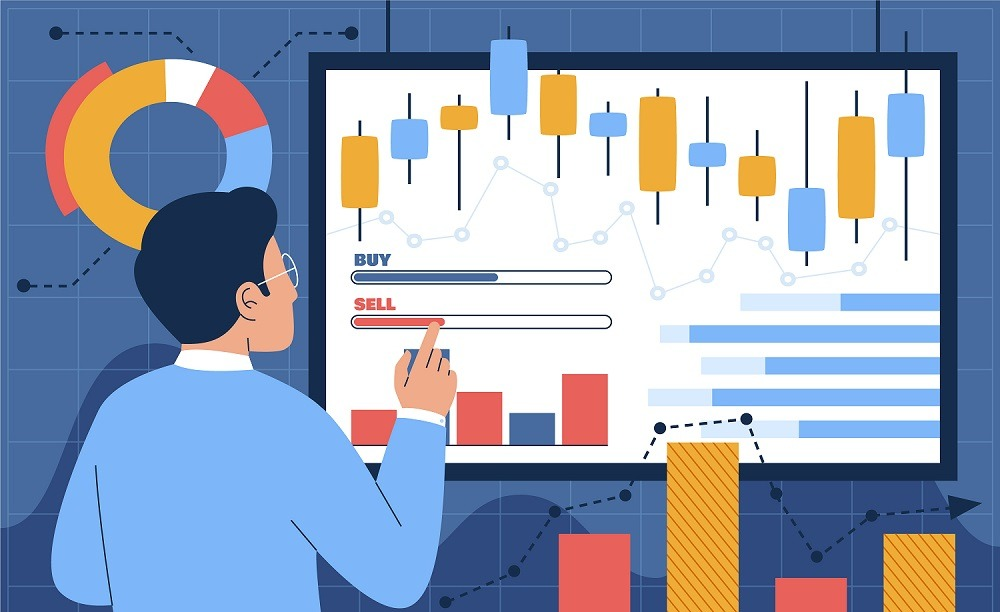Why Traders Should Use Paper Trading?
- Feb, 2024
- By SmartBulls Team

Why Traders Should Use Paper Trading?
Entering the stock market as a beginner can feel like stepping into a maze. It's a vast and unpredictable world, and navigating it can be tough. Before diving in and risking your hard-earned money, it's crucial to learn the basics. Thankfully, there's a way to do that without any risk—it's called paper trading.
So, what exactly is paper trading? Well, it's like a virtual stock market where you trade stocks without using real money. Instead, you use virtual money to buy and sell stocks, and whatever happens in this virtual world won't affect your real money or the actual stock market. It's like a practice round, where you can test out different trading strategies and see how they work without risking any real cash.
How to start with Paper Trading?
Paper trading has been around for a while, but with modern technology, it's become even better. Back in the day, traders would write down their trades on paper and manually track them. But now, there are sophisticated simulation software and online trading platforms, that mimic real market conditions one of them is SmartBulls, this stock market simulator let you practice trading in a more realistic environment, with live market data and prices with a virtual cash balance. You can join the practest to practice trading and test your strategies during market hours.
Is Paper Trading Real or Fake?
Paper trading is like a practice run for trading in the real stock market. You use the same tools and strategies, but you're not using real money. So, while it's not real in the sense of making actual money, it's still a valuable way to learn and improve your skills.
Is Paper Trading Effective?
Paper trading can be really helpful because it lets you try out new trading strategies and techniques without risking real money. It's like practicing before a big game. It helps you get better at trading without the pressure of losing money.
Are Paper Trading and Stock Simulators the Same Thing?
Yep, they're pretty much the same. Both paper trading and stock simulators let you trade stocks without using real money. The only difference is that paper trading used to involve writing down trades on paper, but now you can do it all online with electronic simulators. It's like playing a video game version of the stock market!
Benefits of Paper Trading
1. Stress-Free Learning: Since you're not risking real money, paper trading allows you to learn about the stock market without the stress of potential losses. You can experiment with different trading strategies and learn from your mistakes without any financial consequences.
2. No Financial Risk: Paper trading provides a risk-free way to practice trading. You can make as many trades as you want without worrying about losing money. This allows you to gain confidence in your trading abilities before you start investing real funds.
3. Strategy Testing: Paper trading is an excellent way to test out new trading strategies and refine your approach. You can experiment with different techniques and see how they perform in a simulated market environment.
4. Confidence Building: Successfully executing trades and seeing hypothetical profits can boost your confidence as a trader. Paper trading allows you to build confidence in your trading skills and develop a better understanding of how the market works.
7. Accessibility: Paper trading platforms are accessible to anyone with an internet connection, making them ideal for individuals who want to learn and practice trading from the comfort of their homes. Whether you're a student, homemaker, working professional, or retiree, you can access paper trading platforms anytime, anywhere.
Drawbacks of Paper Trading
1. Limited Realism: While paper trading simulates real market conditions, it may not capture all the nuances of actual trading. Factors like emotions and market psychology may not be accurately represented in a simulated environment. However can be developed while practicing over paper trading.
2.Emotional Disconnect: Since you're not using real money, you may not experience the same emotions and psychological effects as you would with actual trading. This can lead to overconfidence or a lack of discipline when making trading decisions.
3. Cost Consideration: Paper trading doesn't account for other costs associated with real trading, such as fees, commissions, and taxes. This means that your paper trading results may not accurately reflect the true profitability of your trading strategy.
Paper trading is a valuable tool for learning about the stock market and practicing trading strategies. It allows you to gain experience and confidence without risking real money. However, it's essential to recognize its limitations and use it as a learning tool rather than a perfect representation of real trading conditions. With the right approach, paper trading can be an effective way to improve your trading skills and prepare for real-world investing.
Watch our tutorial videos to know how to use Paper Trading App SmartBulls.
